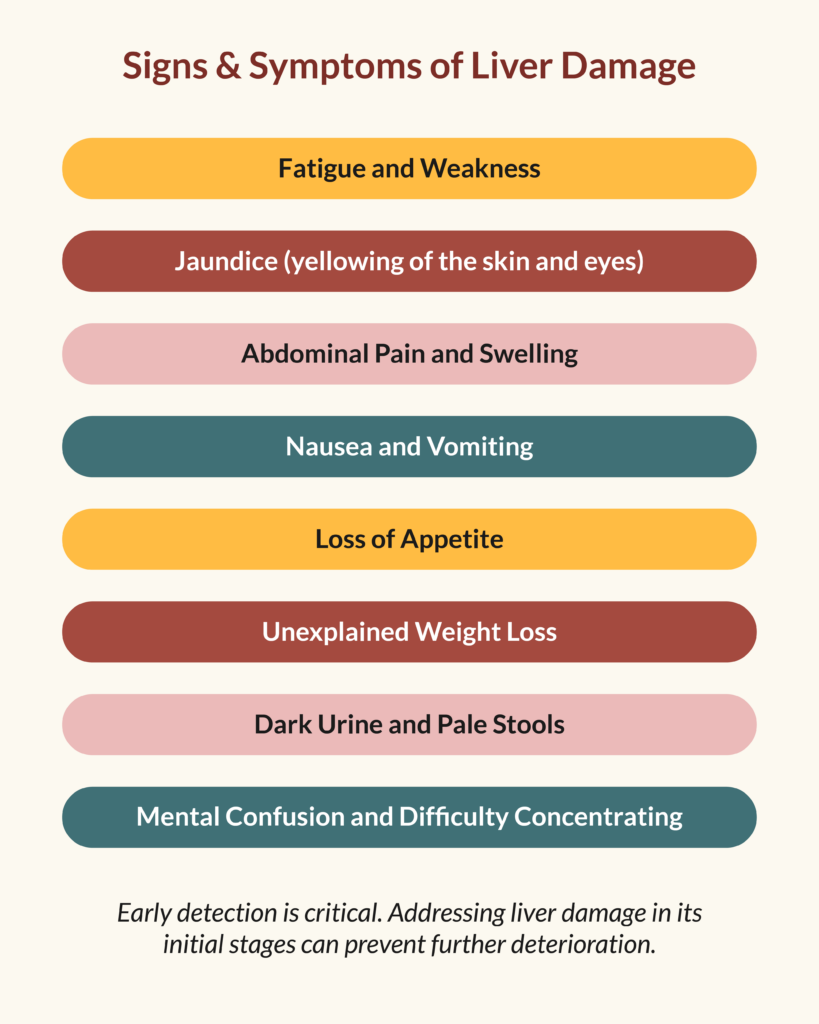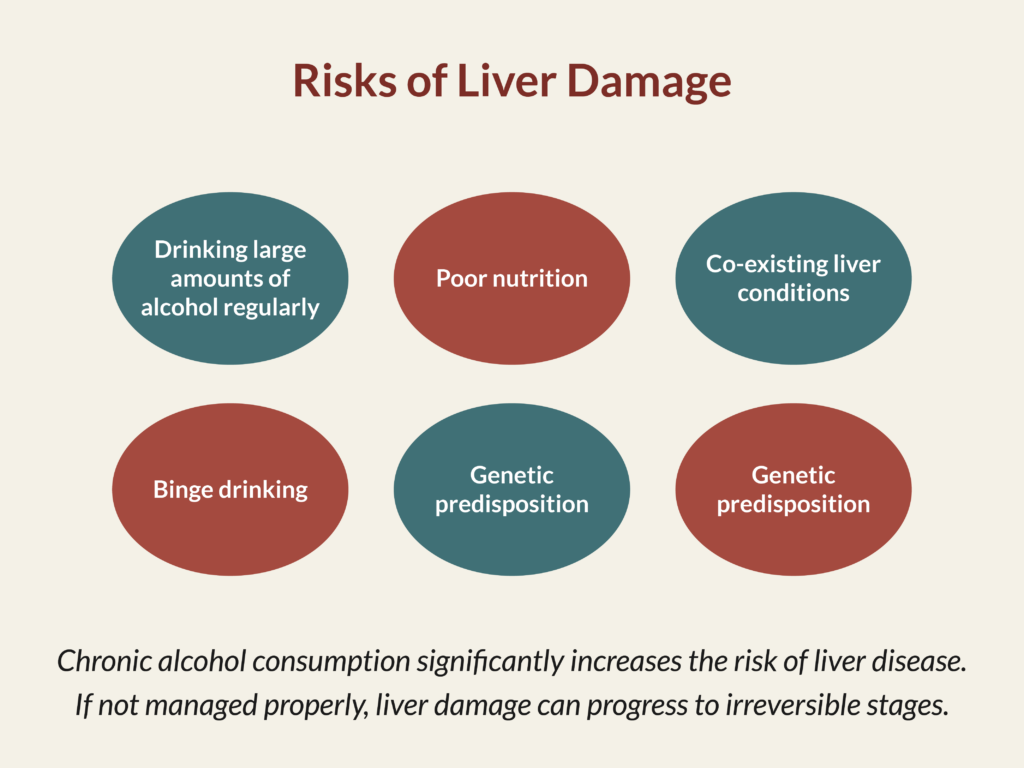Alcohol can wreak havoc on the liver. Heavy consumption of alcohol exacerbates symptoms, posing a serious risk to the liver in the long run. Those who suffer from alcohol addiction are at a higher risk for liver disease than the general population. Luckily, early liver damage from alcohol consumption is reversible. This requires an individual to fully stop drinking alcohol, before severe liver damage becomes permanent.

How Does Alcohol Damage the Liver?
Liver damage is one of the many effects of alcohol on the body. The liver is a vital organ responsible for filtering toxins, metabolizing nutrients, and supporting overall bodily functions. When alcohol is consumed, the liver works to break it down and remove it from the bloodstream. However, excessive alcohol consumption over time can overwhelm the liver, leading to inflammation, fat accumulation, and scarring. This damage disrupts normal liver function and, if left unchecked, can lead to severe and potentially fatal conditions.
Signs and Symptoms of Liver Damage

Liver damage from alcohol often progresses silently, with symptoms appearing only after significant harm has occurred. Common signs include:
- Fatigue and weakness
- Jaundice (yellowing of the skin and eyes)
- Abdominal pain and swelling
- Nausea and vomiting
- Loss of appetite
- Unexplained weight loss
- Dark urine and pale stools
- Mental confusion and difficulty concentrating
Early detection is critical, as addressing liver damage in its initial stages can prevent further deterioration.
Risks of Liver Damage

Chronic alcohol consumption significantly increases the risk of liver disease. Some of the primary risk factors include:
- Drinking large amounts of alcohol regularly
- Binge drinking
- Poor nutrition
- Genetic predisposition
- Co-existing liver conditions, such as hepatitis C
- Obesity, which compounds liver damage
If not managed properly, liver damage can progress to irreversible stages, severely impacting a person’s quality of life and longevity.
Stages of Liver Damage

Liver damage from alcohol progresses in stages, each with increasing severity and complications:
Hepatitis
Alcoholic hepatitis is an early stage of liver damage characterized by liver inflammation. Symptoms include jaundice, fever, nausea, and abdominal pain. While this condition can sometimes be reversed if alcohol consumption stops, prolonged inflammation can lead to more severe damage.
Fibrosis
Fibrosis occurs when the liver starts forming excessive scar tissue due to prolonged inflammation. While some liver function remains intact, continued alcohol use can worsen scarring, reducing the liver’s ability to heal.
Cirrhosis
Cirrhosis is an advanced stage of liver disease where extensive scarring replaces healthy liver tissue, leading to impaired liver function. At this stage, symptoms become more pronounced, and complications such as internal bleeding, fluid accumulation, and liver cancer may arise. Cirrhosis is irreversible, but lifestyle changes can help manage the condition and slow progression.
Liver Failure
Liver failure is the final and most severe stage of liver damage. At this point, the liver loses its ability to function, leading to life-threatening complications such as multi-organ failure and severe infections. Liver transplantation may be the only viable treatment option.
How Common Is Liver Disease?
Liver disease caused by alcohol is a growing public health concern. In 2019, alcohol-related liver disease resulted in 37,000 fatalities across the U.S. In the same study from Yale Medicine, cirrhosis increased from 1999 to 2016 due to the rising rates of alcohol-related liver disease. Alcohol-related liver disease (ARLD) is one of the leading causes of liver transplants worldwide. The best treatment for alcohol-related liver disease is to seek treatment for alcohol addiction. Cutting alcohol out completely is the biggest solution to protecting the liver from the damages of consumption.
How to Repair Liver Damage from Alcohol
While some liver damage is irreversible, adopting a healthier lifestyle can help improve liver function and prevent further deterioration. Steps to repair the liver include:
- Stop drinking alcohol: The most crucial step in liver recovery is eliminating alcohol consumption entirely.
- Adopt a healthy diet: Eating a balanced diet rich in fruits, vegetables, lean proteins, and whole grains supports liver health.
- Stay hydrated: Drinking plenty of water helps flush toxins from the body.
- Exercise regularly: Physical activity improves overall health and can aid in reducing liver fat.
- Take prescribed medications: Doctors may recommend medications or supplements to support liver function and manage symptoms.
- Monitor liver health: Regular medical check-ups and liver function tests can track progress and detect complications early.
Early intervention is key to preventing severe liver damage. If you or someone you know is struggling with alcohol use, seek treatment from Behavioral Health Centers through a detox program and inpatient or outpatient treatment program.









